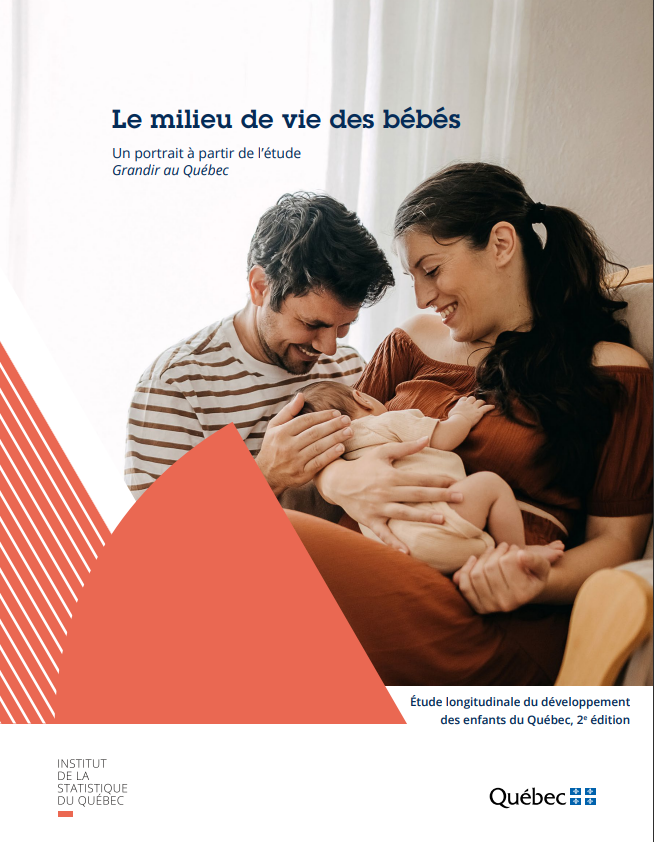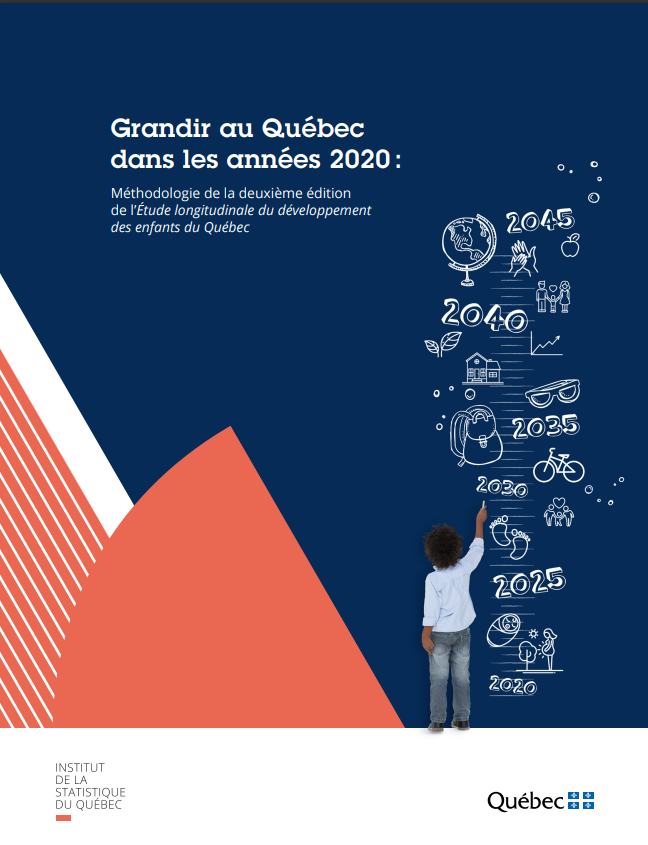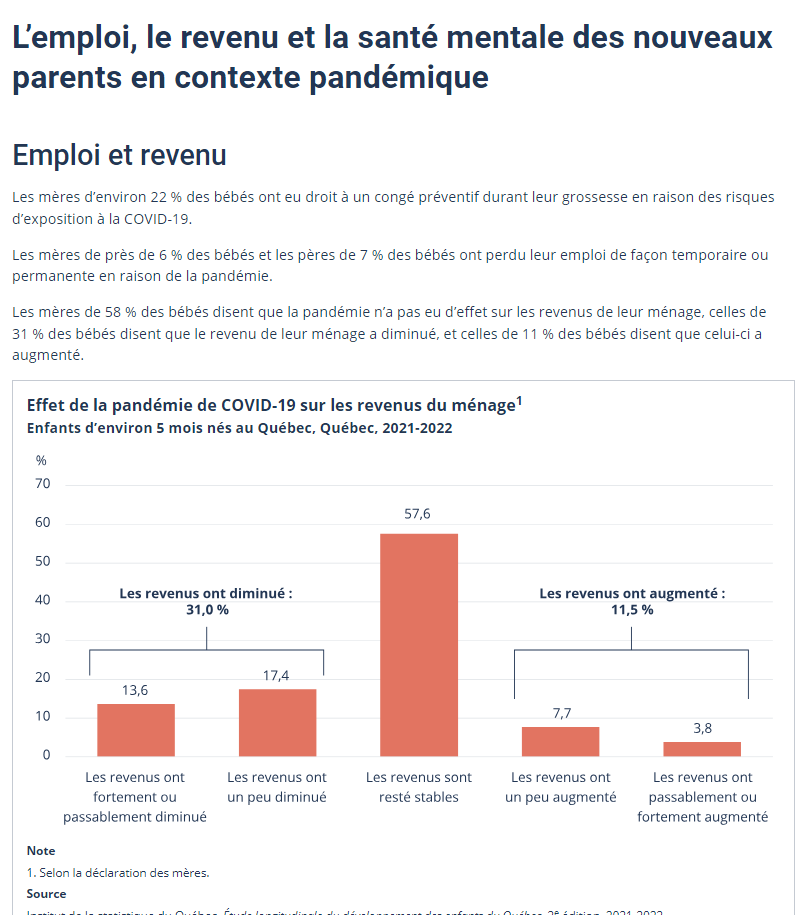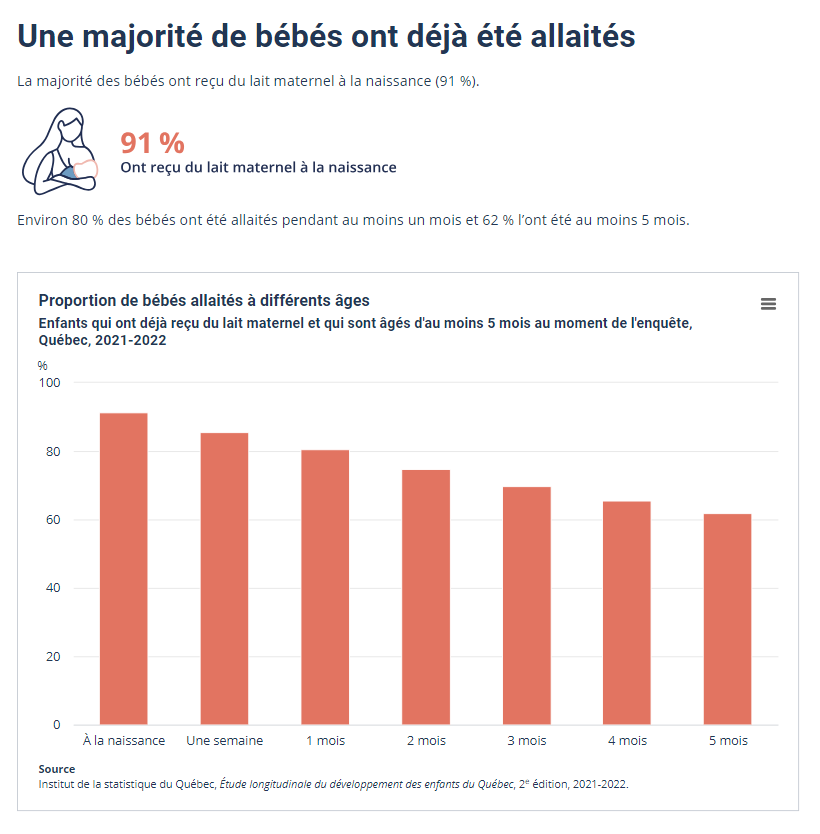General information
Other name
Growing Up in Québec study
Partners
The Lucie and André Chagnon Foundation, the Ministère de l’Éducation, the Ministère de la Famille, the Ministère de la Santé et des Services sociaux, the Ministère de l’Emploi et de la Solidarité sociale, the Conseil de gestion de l’assurance parentale, and the Institut de la statistique du Québec.
Frequency and editions
Expected duration of the study
Until the participating children reach adulthood
Type of survey
Longitudinal survey, provincial representativeness.
Targeted population
Two groups of children born to mothers residing in Québec.
- 2018 cohort: Children born between March and September 2018
- 2020-2021 cohort: Children born between October 2020 and September 2021
Both cohorts exclude children born before 24 weeks or after 42 weeks of gestation, as well as families living in regions very far from large centres (for example, Nord-du-Québec, Nunavik, and Terres-Cries-de-la-Baie-James). Other exclusions could apply.
Sampling and data collection
Households whose main (interviewer-administered) questionnaire was completed. The 2022 data collection only included a self-administered questionnaire for the parents.
2018 cohort
- 2018: 449 participating households
- 2019: 411 participating households
- 2020: 180 participating households (only a portion of the sample was invited to participate due to the COVID-19 pandemic)
- 2021: 338 participating households
- 2022: 571 participating parents
2020-2021 cohort
- 2021: 4,703 participating households
Themes
Early childhood: Birth conditions; pregnancy and childbirth; type of childcare; family environment; socioeconomic environment; community environment; school environment; reading habits; technological habits; physical health; relationships with peers, parents and educators; sleep; language; nutrition; social adjustment; mental health; siblings; cognitive development; victimization.
Childhood and adolescence: Relationship with teachers; academic performance and motivation; risk behaviours; work; studies; romantic relationships; financial situation; lifestyle habits; career choice; well-being. Other themes will be added over time.
Technical and methodological documentation
Data collection tools, guides, study methodology, etc.
Additional information
Study website: Growing Up in Québec study




